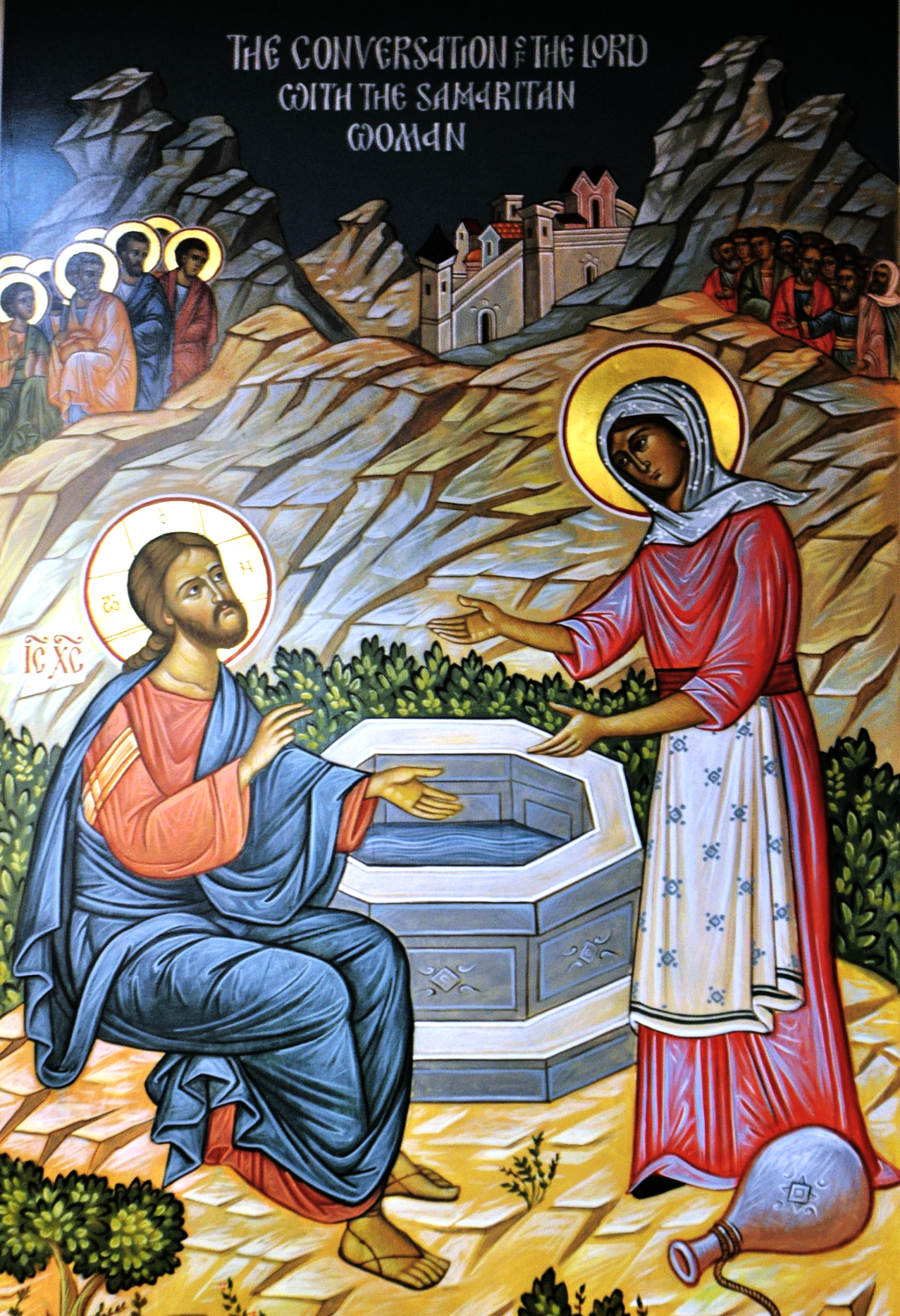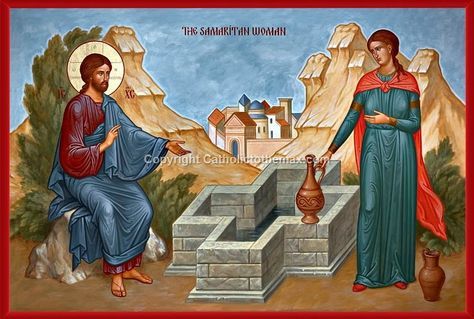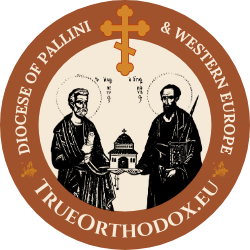5 Steps to Become a Christian Missionary by Dr. Vladimir Moss

HOW TO BE A CHRISTIAN MISSIONARY
The Lord provides us with a perfect example in all things, including how to convert unbelievers to the faith. This is what we see in his conversation with the Samaritan woman in the Gospel according to John, chapter 4. Let us draw some lessons from this fascinating dialogue:-
1. Do not begin with the faith itself, but with a subject close to the potential convert’s ordinary, everyday life at this point. The Samaritan woman came to Jacob’s well to draw water, a very important everyday task in that hot climate. So the Lord asks her for water and then tells her where she can find “living water” – that is, as the woman understands Him, continually running water. But this is not what the Lord means: He means the continually running water of the Holy Spirit. But to speak openly and directly about that at the beginning would have been unproductive. So He acts more subtly: first drawing her attention by speaking about material water, the Lord turns the conversation to spiritual water, the grace of the Holy Spirit – but in a hidden, symbolic form that intrigues His listener.

Great missionaries often first help their potential converts in their everyday lives before trying to convert them to the faith. Thus St. Wilfrid of York, the apostle of the South Saxons, first taught the South Saxons to fish in time of famine before opening to them the riches of the Gospel. “Ordinary” charity precedes and prepares the way for the greatest charity, which is the communication of the truth of salvation.
2. Do not be deterred by the racial or political prejudices of your own people. It was the Samaritan woman herself who, not wishing to cause problems for the Lord, pointed to the fact that “the Jews have no dealings with the Samaritans”. They had no dealings with them because the Samaritans, a Gentile race, occupied land that, many centuries before, had belonged to the Jews. They had another, better-founded prejudice against the Samaritans: that they were what we would now call heretics, believing in the Law but not the Prophets, and mixing the true faith with pagan superstitions. However, the true missionary must resist both racial, political and religious reasons for not being completely open with his potential converts and truly engaging with them as equals. For the sake of the salvation of their souls he must be “all things to all men”, in the words of that great missionary, the Apostle Paul, thereby laying himself open to possible persecution from his own people for whom the salvation of foreigners may be a matter of indifference or even undesirable.
When St. Augustine of Canterbury came from Rome to convert the pagan Anglo-Saxons, he wanted to work with the British Christians of Wales. But they refused, being filled with hatred for the Anglo-Saxons who had seized their lands. However, this did not deter St. Augustine, and later he found helpers in the Christians of Ireland, who did not have this racial prejudice against the English.
3. If possible, first remove moral obstacles to the reception of the truth. Since the main obstacle to a man receiving the faith is the mire of evil deeds that cloud the vision of the truth, it is necessary to seek out first of all the morally pure, or at any rate those who love the truth more than their own impurity. For “if any man will do His will, he shall know of the doctrine, whether it be of God” (John 7.17). Such a person was the Samaritan woman, who, on being told by the Lord that she had had five husbands and that she was now living in sin, did not deny it, but marvelled at His clairvoyance, calling Him a prophet.
On his missionary journeys through Scotland, St. Columba of Iona once made a large detour to the Isle of Skye in order to baptize a pagan on his deathbed. St. Adomnan, the chronicler of St. Columba’s life, makes the point that this pagan had been “innocent since his youth”. Moral purity both aids the initial perception of the truth, and helps to strengthen and preserve it once it has been received.
4. Do not make ecumenist compromises in preaching to the heretics. The Samaritan woman is now ready for a serious discussion of the questions arising from the differences between her faith and the faith of the Jews. One of these questions was: where – in Jerusalem or Samaria – was God to be worshipped? The woman seeks to justify her own religious practice by saying: “Our fathers worshipped in this mountain [of Samaria]”, meaning by “our fathers” Abraham, Isaac and Jacob. But the Lord ignores this, mutely refusing to agree that Abraham, Isaac and Jacob were the fathers of the Samaritans. Instead he says, gently but firmly and unambiguously: “Ye worship ye know not what: we know what we worship; for salvation is of the Jews”. So no ecumenist cliché of the type: “we all worship the same God” for the Lord! The Samaritans, while pretending to worship the God of Jacob, in fact worshipped a demon without knowing it; for “all the gods of the pagans are demons” (Psalm 95.5).
We could say the same about the Muslims today. They – and the Christian ecumenists – think that they worship the same God as appeared to Abraham, Isaac and Jacob. But in fact they worship a demon, a pagan moon-god called Allah. The God Who appeared to Abraham, Isaac and Jacob is the same God Who talked to the Samaritan woman at the well and Who rose from the dead on the third day – Jehovah, the Lord Jesus Christ. The Christian missionary working among the Muslims must always hold on to this fact, and not pretend that Allah is the same as the God of the Christians. The Muslims know not what they worship; but we know Whom we worship; for salvation resides in Christ alone.
Similarly, the Jews do not worship the same God as the Christians; for insofar as they reject Christ, they reject God, because Christ is God, and also the Father and the Holy Spirit. “Whoever denies the Son does not have the Father either. He who acknowledges the Son has the Father also” (I John 2.23).
5. Nevertheless, it is legitimate to use points of agreement in order to clinch the truth of the Christian message. Although only one religion, Orthodox Christianity, is the true religion, – that is, the religion that is completely true, enabling us to worship the one true God “in spirit and in truth”, – this is not to say that other religions do not have elements of the truth. The Samaritan woman seizes upon one such element that the Samaritans had in common with the Jews: that the Messiah was coming, and that He would reveal the fullness of the truth to them. The Lord mutely confirmed her belief, and then crowned it with the revelation that He had not yet given even to the Jews because of their unworthiness: that He Himself was the Messiah.
St. Paul used a similar tactic with the sophisticated Athenians. He found an altar with the inscription “To the Unknown God” and then said to them: “the One Whom you worship without knowing Him I proclaim to you” (Acts 17.23). Neither the Samaritans nor the Athenians knew what they worshipped. But the ignorance of the two races was different in kind. The Samaritans made a false identification: they identified the pagan god whom they worshipped with the God of Israel. But the Athenians with their greater sophistication and philosophical training had an inkling of the truth even in their ignorance; they knew, or at any rate hypothesized, that in addition to the pagan gods there was another God Who made the heavens and the earth, and that such a God was in essence unknowable. And Paul, with his knowledge of Greek culture, seized on this element of truth in the Greeks’ speculations in order to try and bring them into the fold of the Church.
*
Very little true missionary work can be seen in the world today. There are two possible explanations of this lamentable fact. The first is that the world is not worthy to receive the missionaries of the truth; so God does not “cast His pearls before swine” by sending workers into a harvest that consists only of weeds. The other is that the Christians themselves are so weak in faith and love that they do not undertake the great mission of preaching to all peoples that the Lord entrusted to the Church. Both explanations have elements of the truth. On the one hand, if the world were worthy and actively searching for the truth, then there is no doubt that the Lord in His great hunger for the salvation of souls would be sending out workers to reap that harvest, even if He had to create such workers out of the stones of the earth. On the other hand, even a superficial overview of the Church today will convince us that this generation of Orthodox Christians is perhaps the weakest in history, and is barely able to save itself, let alone save others.
The weakness of contemporary Orthodoxy is of two basic kinds. On the one hand, there is the weakness created by the dominant heresy of ecumenism, which by claiming that all faiths are true and salvific essentially destroys the need for missionary work. This is a weakness of faith. On the other hand, there is the weakness that comes from a lack of desire for the salvation of our neighbour; sometimes this is combined with an active hatred of certain nations. This is a weakness of love.
St. Seraphim of Sarov once said: “Find peace, and a thousand souls around you will be saved.” Let us take his words with faith and love. Even if we have no particular aptitude or calling or training for missionary work, we can become de facto missionaries by becoming de facto Christians, letting our light so shine before men that they may see our good works and glorify our Father Who is in heaven. Then, however unpromising and full of weeds the mission field looks to our eyes, green shoots of true Christian faith and love will push their way through the weeds through the sowing of God. And then we will have the same joy that the Lord had when He saw the soon-to-be-converted Samaritans approaching Him: “Say not ye, There are yet four months, and then cometh the harvest? Behold, I say to you, Lift up your eyes, and look on the fields; for they are white already to harvest…” (John 4.35-36).
May 1/14, 2014.Mid-Pentecost.







